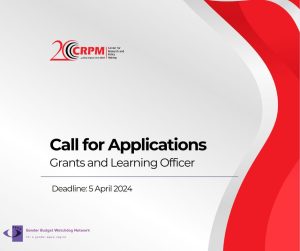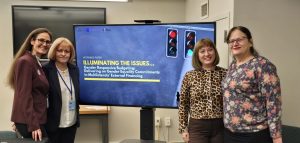Budgets and their efficiency mean nothing if there is no proper monitoring mechanisms or Civil Society Organizations’ (CSO) capacities in place to ensure budget lines are spent according to the real needs of the population it concerns. This is especially true for gender related policies, measures and budgets as instruments to those policies. In line with that a second workshop/training for 12 CSOs was held on 5th and 6th of November 2016 in Hotel Porta, Skopje, Macedonia as part of the project “Budget Watchdogs for Gender Responsive Budgeting” in close collaboration and support of UN Women within the framework of the project “Promoting gender responsive policies in South East Europe and the Republic of Moldova (2013-2016)” implemented by the UN Women and financed by the Austrian Development Agency and the Swiss Agency for Cooperation and Development. The aim of the project in Macedonia is to strengthen the capacities of CSOs to monitor the impact of public policies and budgets on women and men and advocate for gender responsive policy making and budgeting.
The workshop was used the organizations to present their initial findings in their 15 draft budget watchdog monitoring report concerning particular budget lines or policies within 12 local budgets in Macedonia. The event was used to give individualized input and consultation by two local mentors, Mr. Riste Jurukovski and Ms. Marija Risteska as well as one international GRB expert coming from the Republic of Serbia, Ms. Aleksandra Vladisavljevic. Ms. Vladisavljevic weighed in on the GRB experience in Serbia and shared practical examples in establishing efficient CSO monitoring by strengthening their capacities, developing options for CSO networking in line with the stakeholder matrix they have developed. It is expected that the results of this workshop/training will be better prepared GRB monitoring reports, improved visualization, deeper analysis of their respective budget lines and understanding the importance of advocacy for creating a fertile ground fo gender responsive policy making and budgeting.
The workshop and consultation process was also used to a) create stronger linkages among CSOs working on gender responsive budgeting; b) take advantage of the informal networking to further strengthen their capacities and create opportunities for mutual cooperation in future activities; c) encourage cross-regional cooperation when approaching/working with the municipal administrations.







